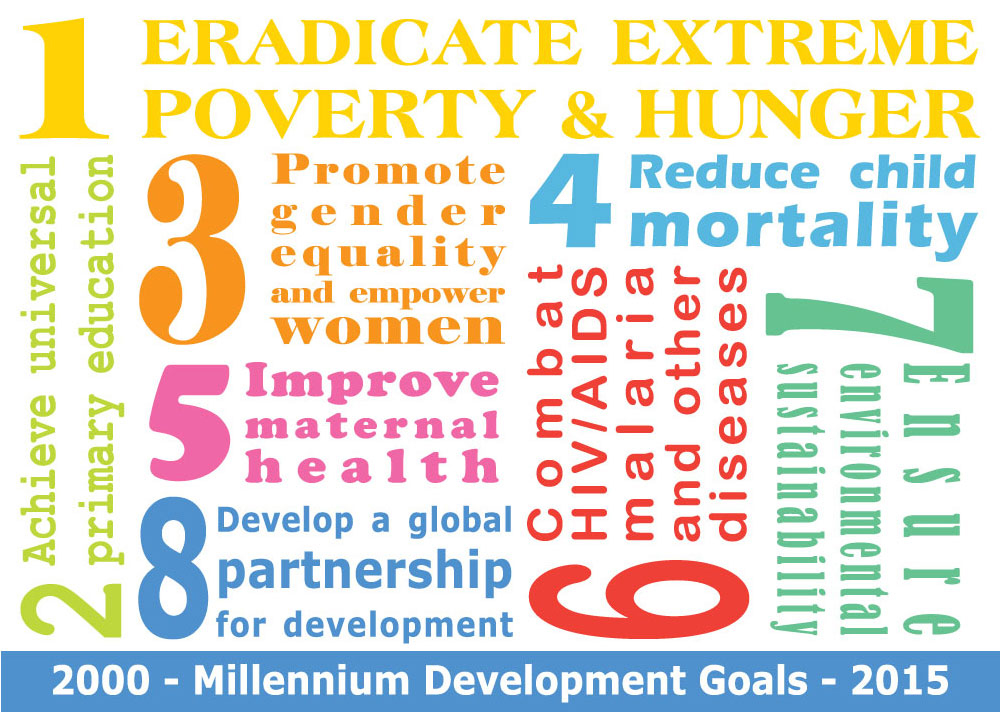| << Chapter < Page | Chapter >> Page > |

In 2000, the world entered a new millennium. In the spirit of a grand-scale New Year’s resolution, it was a time for lofty aspirations and dreams of changing the world. It was also the time of the Millennium Development Goals, a series of ambitious goals set by UN member nations. The MDGs, as they become known, sought to provide a practical and specific plan for eradicating extreme poverty around the world. Nearly 200 countries signed on, and they worked to create a series of 21 targets with 60 indicators, with an ambitious goal of reaching them by 2015. The goals spanned eight categories:
There’s no question that these were well-thought-out objectives to work toward. So 11 years later, what has happened?
As of the 2010 Outcome Document, much progress has been made toward some MDGs, while others are still lagging far behind. Goals related to poverty, education, child mortality, and access to clean water have seen much progress. But these successes show a disparity: some nations have seen great strides made, while others have seen virtually no progress. Improvements have been erratic, with hunger and malnutrition increasing from 2007 through 2009, undoing earlier achievements. Employment has also been slow to progress, as has a reduction in HIV infection rates, which have continued to outpace the number of people getting treatment. The mortality and healthcare rates for mothers and infants also show little advancement. Even in the areas that made gains, the successes are tenuous. And with the global recession slowing both institutional and personal funding, the attainment of the goals is very much in question (United Nations 2010).
As we consider the global effort to meet these ambitious goals, we can think about how the world’s people have ended up in such disparate circumstances. How did wealth become concentrated in some nations? What motivates companies to globalize? Is it fair for powerful countries to make rules that make it difficult for less-powerful nations to compete on the global scene? How can we address the needs of the world’s population?
United Nations Development Programme. 2010. “Millennium Development Goals.” Retrieved December 29, 2011 ( (External Link) ).

Notification Switch
Would you like to follow the 'Introduction to sociology' conversation and receive update notifications?